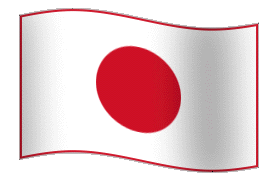G
Guns Guns Guns
Guest

In the wake of the 1987 Hungerford massacre, in which one lone gunman killed 16 people, Britain introduced new legislation -- the Firearms (Amendment) Act 1988 --- making registration mandatory for owning shotguns and banning semi-automatic and pump-action weapons.
Within a year and a half of the Dunblane massacre, UK lawmakers had passed a ban on the private ownership of all handguns in mainland Britain, giving the country some of the toughest anti-gun legislation in the world.
After both shootings there were firearm amnesties across the UK, resulting in the surrender of thousands of firearms and rounds of ammunition.
Britain has never had a "gun culture" like that of the United States, but there were about 200,000 legally-registered handguns in Britain before the ban, most owned by sports shooters.
All small-bore pistols, including the .22 caliber, were included in the ban, along with rifles used by target shooters. Penalties for anyone found in possession of illegal firearms range from heavy fines to prison terms of up to 10 years.
The public generally supported the ban, with most saying they saw no need for guns.
Since then the number has fallen in each year.
In 2010/11 there were 11,227 offenses, 53% below the peak number, according to the official crime figures. Crimes involving handguns also fell 44% -- from 5,549 in 2002/03 to 3,105 -- in 2010/11.

In 2008, the U.S. had over 12 thousand firearm-related homicides.
All of Japan experienced only 11, fewer than were killed at the Aurora shooting alone.
And that was a big year: 2006 saw an astounding two, and when that number jumped to 22 in 2007, it became a national scandal.
By comparison, also in 2008, 587 Americans were killed just by guns that had discharged accidentally.
Almost no one in Japan owns a gun.
Most kinds are illegal, with onerous restrictions on buying and maintaining the few that are allowed.
Even the country's infamous, mafia-like Yakuza tend to forgo guns; the few exceptions tend to become big national news stories.
Handguns are forbidden absolutely.
Small-caliber rifles have been illegal to buy, sell, or transfer since 1971.
Anyone who owned a rifle before then is allowed to keep it, but their heirs are required to turn it over to the police once the owner dies.
The only guns that Japanese citizens can legally buy and use are shotguns and air rifles, and it's not easy to do.
The process is detailed in David Kopel's landmark study on Japanese gun control, published in the 1993 Asia Pacific Law Review, still cited as current. (Kopel, no left-wing loony, is a member of the National Rifle Association and once wrote in National Review that looser gun control laws could have stopped Adolf Hitler.)
To get a gun in Japan, first, you have to attend an all-day class and pass a written test, which are held only once per month.
You also must take and pass a shooting range class.
Then, head over to a hospital for a mental test and drug test (Japan is unusual in that potential gun owners must affirmatively prove their mental fitness), which you'll file with the police.
Finally, pass a rigorous background check for any criminal record or association with criminal or extremist groups, and you will be the proud new owner of your shotgun or air rifle.
Just don't forget to provide police with documentation on the specific location of the gun in your home, as well as the ammo, both of which must be locked and stored separately. And remember to have the police inspect the gun once per year and to re-take the class and exam every three years.
http://edition.cnn.com/2012/12/17/world/europe/dunblane-lessons/
http://www.theatlantic.com/internat...-virtually-eliminated-shooting-deaths/260189/
